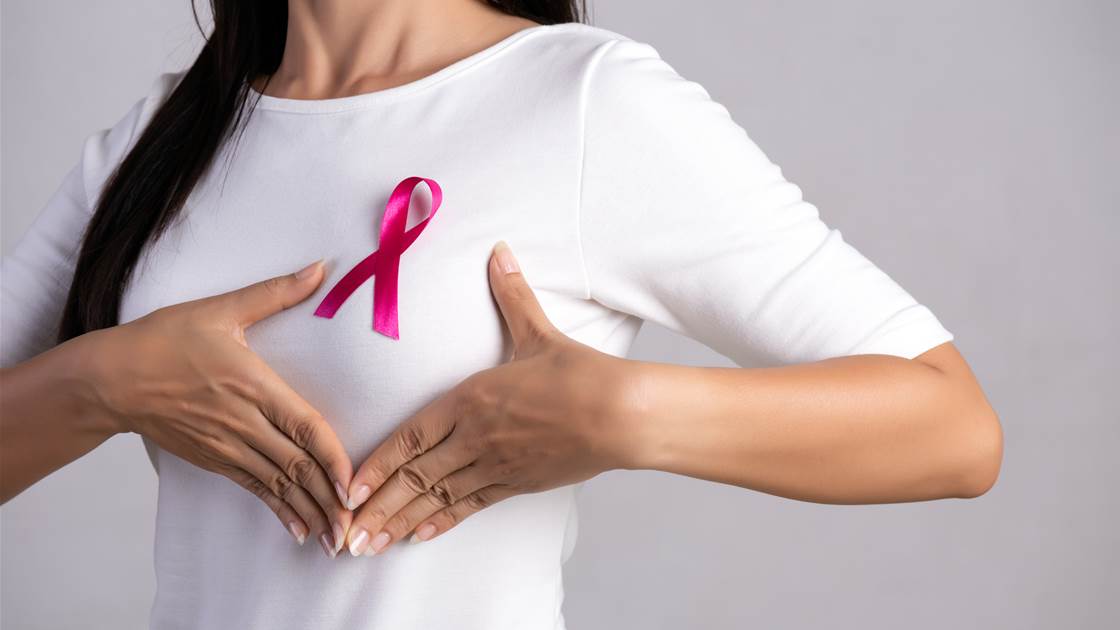Breast Cancer Trials is urging Australian women not to delay medical attention during COVID-19, following a substantial reduction in breast cancer procedures in 2020.
In Victoria alone it's estimated that 2530 cancer diagnoses were delayed or missing during the COVID-19-related restrictions. Researchers made the finding using data from the Victorian Cancer Registry, with breast cancer being one of the biggest areas of concern.
Around Australia there was a substantial drop in mammograms, solid tumour breast biopsies and fine needle aspiration procedures in the three months following March 2020 lockdowns. Breast cancer-related surgical treatment procedures in May were around two-thirds that recorded for March and April, a decrease of around 33%.
A recent study by Queen Mary University of London, published in the journal Radiology, has revealed that women who have yearly mammograms have about a 30% reduction in breast cancer mortality.
Breast Cancer Trials Medical Advisor Dr Nicholas Zdenkowski (above) said: “Breast cancer does not wait until the end of a pandemic. The longer a cancer is left undiagnosed, the more likely it is to grow and travel elsewhere in the body such as to the lymph nodes under the arm, or worse, to other parts of the body.
“The idea of screening mammography and self-awareness of breast change is that cancer or pre-cancer (such as DCIS) is found at its earliest stage when there is the best chance of cure with minimal treatment. There are some early indications that fewer cancers have been diagnosed during COVID. This is not because they are not occurring, but that people are not getting their screening mammograms and colonoscopies, and may not be seeing their doctor for their regular health checks.
“I would encourage everyone to make the time for their health and to ensure that screening checks are up to date. Even without COVID, there were some people who would not attend screening regularly enough, or not at all. However, the benefits are substantial, and the risks are minimal."
Breast Cancer Trials is a group of world-leading breast cancer doctors and researchers based in Australia and New Zealand who are committed to finding better treatments for people affected by breast cancer through clinical trials research.
The organisation has saved the lives of millions of people affected by breast cancer since its inception in 1978 and is looking forward to another strong year of clinical trial activity in 2021.
Why take part in a clinical trial?
Clinical trials are an important part of our health system and are necessary to find out if new treatments are more effective than those currently accepted as the best available standard of care.
All new breast cancer treatments or prevention strategies must be rigorously tested through the clinical trials process before they are made widely available to the community.
“A trial that has already started this year, but is hoped to escalate, is the BRCA-P trial, which aims to find out if a well-known and safe drug that is used for osteoporosis (denosumab), can be used to prevent breast cancer in women who carry a faulty BRCA1 gene,” Dr Zdenkowski revealed.
“These women have an 80% chance of breast cancer in their lifetime, and the only routinely used treatment is bilateral mastectomy (removal of both breasts), when most women would much prefer to keep their breasts if there was a sufficiently low risk of developing breast cancer as a result of this new drug.
“The Neo-N trial is looking at immunotherapy with relatively low dose chemotherapy before surgery for operable breast cancer, hoping to spare some women the higher dose chemotherapy that is given to patients with triple negative breast cancer, thereby sparing them the side effects that can be both short and long term.
“The CAPTURE trial is testing whether we can use a blood test to identify a particular mutation in the tumour and use that knowledge to direct anti-cancer medications. We also will have several new trials opening using exciting new medications for metastatic and early stage breast cancer, along with ongoing trials looking at reducing the burden of surgical and radiotherapy treatments."
Trial recruitment numbers decline
Dr Zdenkowski said it was harder to recruit patients for clinical trials during COVID-related lockdowns, but volunteer numbers are rising again. He explained that women with breast cancer should be open to taking part in a trial, because of the benefits both to themselves and in helping other women battling the disease in the future.
“Taking part in a clinical trial, in my opinion, represents the highest standard of cancer care available,” he said.
“Research has shown that patients who go to a hospital where trials are conducted have better outcomes than those who go to hospitals where trials are not conducted, even if the individual patient does not even participate in a trial themselves. The treatments used in breast cancer trials have strong scientific and clinical rationale, along with the input from some of the best breast cancer specialists in the country to ensure that they are well designed. The treatments used in trials are considered at least as good as the best available standard clinical practice. If a placebo is used, these days it is typically in combination with the medication that would used in standard practice outside of a trial.
“The current good outcomes that we see in breast cancer are a vast improvement over what occurred three to four decades ago, when many more women were dying from breast cancer.
"These improvements are a direct result of clinical trials showing that new treatments are effective, thanks to people who volunteered to participate in trials in the past. For those improvements to continue for the generations to come, more trials and trial participants are needed. We cannot rest until the burden of breast cancer is erased completely."
How you can support the ongoing success of Breast Cancer Trials
Among the ways Australians can help Breast Cancer Trials ensure better outcomes for women fighting breast cancer is by being willing to consider participating in a trial if offered the opportunity, or supporting the participation of a loved one, and in giving as generously as possible to help reduce the impact of this cancer, which still affects far too many people. Participating in a fundraising activity is also a great way to help raise funds.
Information and ideas can be found at www.breastcancertrials.org.au










